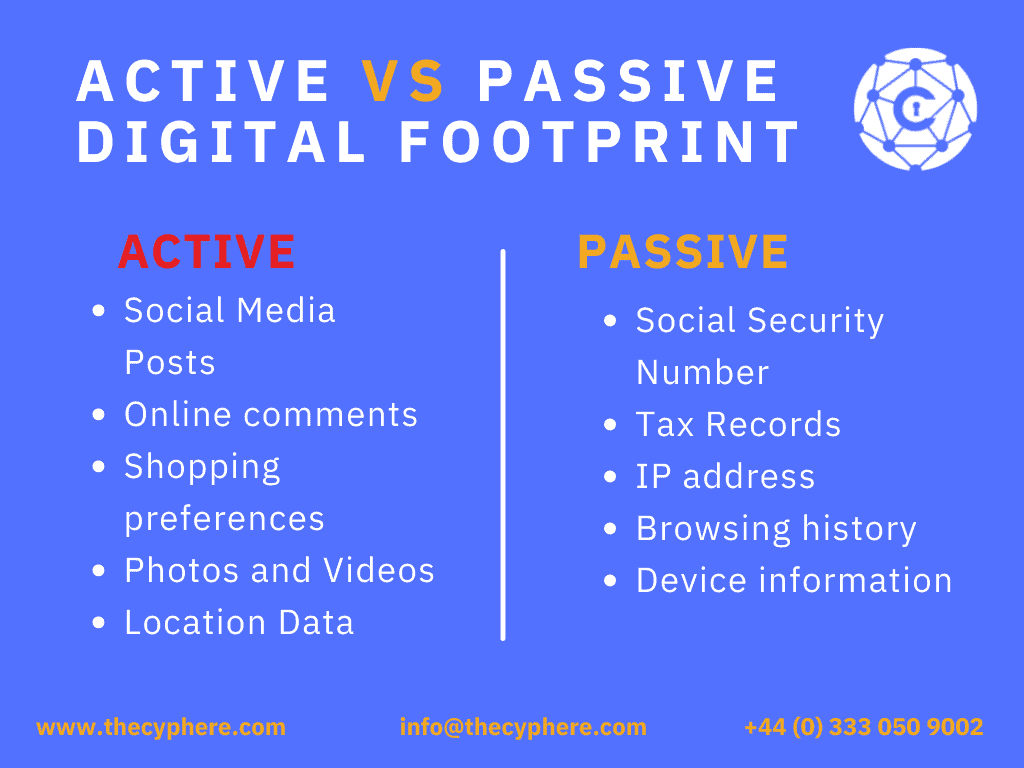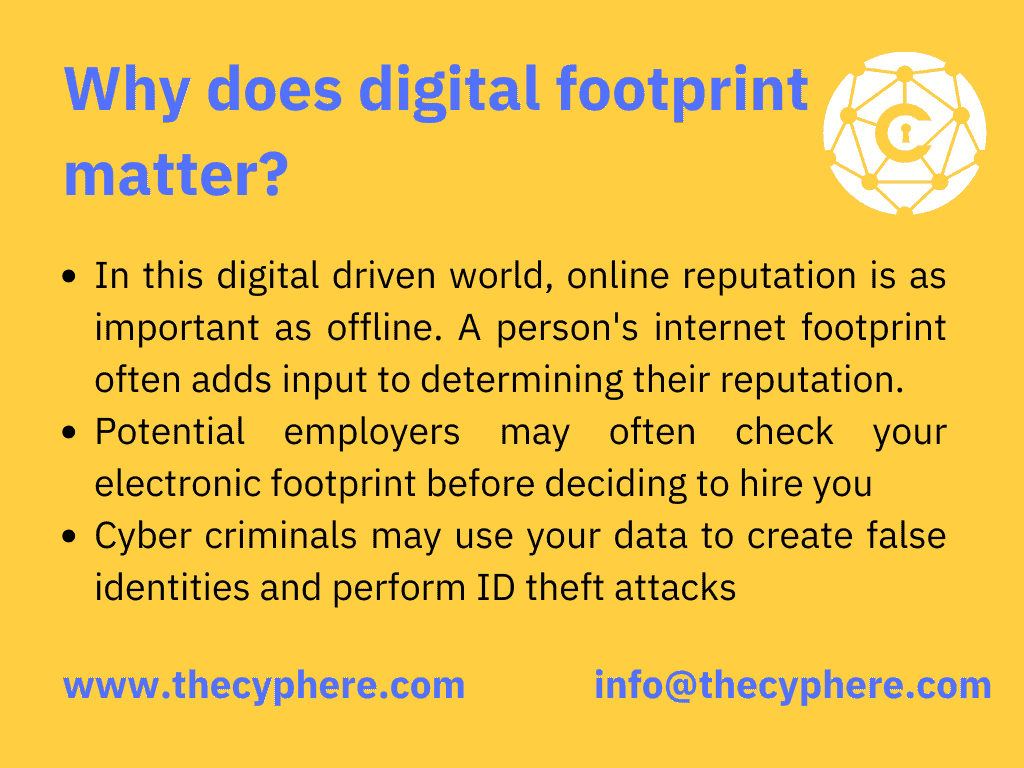Imagine this: you're scrolling through your favorite shopping site, adding items to your cart, and suddenly ads for those same products start popping up everywhere you go online. Ever wondered why that happens? The answer lies in cookies, those tiny bits of data that play a massive role in shaping your digital footprint. If you're curious about how cookies influence your online presence, you're in the right place. Let's dive deep into the world of cookies and their impact on your digital identity.
Cookies have become an integral part of the digital ecosystem, and understanding their role is crucial for anyone who cares about their privacy and online security. Whether you're a tech enthusiast or just someone trying to make sense of how the internet works, this article will break it down for you in simple terms. So, buckle up because we're about to embark on a journey through the cookie-filled corridors of cyberspace!
From tracking your browsing habits to personalizing your online experience, cookies shape the way websites interact with you. But are they harmless tools or potential privacy threats? Stick around as we unravel the mystery and explore what role cookies truly play in your digital footprint.
Read also:Boo Williams Sportsplex Your Ultimate Playground For Sports Enthusiasts
Understanding Cookies: The Basics
What Exactly Are Cookies?
Alright, let's start with the basics. Cookies, in the digital sense, are small pieces of data that websites store on your device when you visit them. Think of them as little sticky notes that websites leave behind to remember things about you, like your preferences or login details. These snippets of information help websites provide a more personalized experience, but they also contribute to your digital footprint in ways you might not even realize.
For example, when you visit an online store and add items to your cart, cookies allow the site to remember what you've added, even if you close your browser and come back later. It's like having a virtual shopping assistant who remembers everything you've been eyeing. But here's the kicker: these cookies can also track your behavior across different websites, building a detailed profile of your online activities.
Types of Cookies: Not All Are Created Equal
Now, not all cookies are the same. There are two main types: session cookies and persistent cookies. Session cookies are temporary and only last as long as your browsing session. Once you close your browser, they disappear like magic. These are usually used for things like keeping you logged in while you're on a website.
Persistent cookies, on the other hand, stick around for a while. They have an expiration date and are used for things like remembering your preferences or tracking your behavior over time. These cookies are the ones that really contribute to your digital footprint because they allow websites to build a long-term profile of your online activities.
How Cookies Shape Your Digital Footprint
The Connection Between Cookies and Your Online Identity
So, how exactly do cookies affect your digital footprint? Well, every time you visit a website, cookies collect information about your behavior. This includes things like the pages you visit, the links you click, and even the time you spend on each page. All of this data gets stored and analyzed by websites and third-party advertisers to create a detailed picture of your online identity.
Imagine your digital footprint as a trail of breadcrumbs you leave behind as you navigate the internet. Cookies are the ones dropping those breadcrumbs, and the more you interact with websites, the more detailed that trail becomes. This information can then be used to target you with personalized ads, content, and even pricing strategies.
Read also:Housing And Urban Development The Blueprint For Modern Cities
Tracking and Profiling: The Dark Side of Cookies
While cookies can enhance your online experience, they also have a darker side. Third-party cookies, in particular, are often used for tracking and profiling. These cookies are placed on your device by advertisers and other companies that partner with the websites you visit. They allow these companies to follow you across the web, collecting data about your interests, habits, and preferences.
This kind of tracking can feel invasive, especially when you start seeing ads for something you were just casually browsing. It's like having a nosy neighbor who knows way too much about your personal life. But the truth is, this kind of profiling is big business, and companies are willing to pay top dollar for the data cookies provide.
Third-Party Cookies: The Invisible Hand in Your Digital Life
What Are Third-Party Cookies?
Let's talk about third-party cookies for a moment. These are the cookies that are placed on your device by companies other than the website you're visiting. For example, if you visit a news site and see ads from a different company, chances are that company is using third-party cookies to track your activity.
Third-party cookies are often used for behavioral advertising, which means they help advertisers show you ads based on your past behavior. While this can make ads more relevant, it also raises privacy concerns. After all, do you really want strangers knowing what you've been searching for online?
The Privacy Debate: Are Third-Party Cookies a Threat?
There's a growing debate about whether third-party cookies are a threat to online privacy. On one hand, they provide valuable data that helps advertisers target their campaigns more effectively. On the other hand, they can be seen as an invasion of privacy, especially when users aren't aware of the extent of the tracking.
Many privacy advocates argue that users should have more control over how their data is collected and used. Some browsers, like Safari and Firefox, have already taken steps to block third-party cookies by default. Google Chrome, one of the most popular browsers, is also planning to phase them out in the coming years, citing privacy concerns.
First-Party Cookies: The Good Guys?
What Makes First-Party Cookies Different?
Now, let's talk about first-party cookies. Unlike third-party cookies, these are placed on your device by the website you're actually visiting. They're often used for things like remembering your login details, storing your preferences, and keeping track of items in your shopping cart.
First-party cookies are generally considered less intrusive because they're only used by the website you're interacting with. They don't track you across the web like third-party cookies do, and they often provide a more seamless user experience. For example, if you're shopping online and you leave an item in your cart, a first-party cookie will make sure that item is still there when you come back.
Are First-Party Cookies Completely Harmless?
While first-party cookies are generally seen as more privacy-friendly, they're not without their drawbacks. Some websites use first-party cookies to track your behavior and build profiles just like third-party cookies do. The difference is that this tracking is limited to the website you're visiting, rather than spanning across multiple sites.
Still, it's important to be aware of how websites use first-party cookies and what data they collect. Most browsers allow you to manage your cookie settings, so you can choose which cookies to allow and which to block. This gives you more control over your digital footprint and helps protect your privacy.
Managing Your Cookies: Taking Control of Your Digital Footprint
How to Manage Cookies in Your Browser
If you're concerned about your digital footprint, managing your cookies is a great place to start. Most browsers have built-in tools that let you control how cookies are handled. You can choose to block all cookies, allow only first-party cookies, or even clear cookies manually.
Here's a quick guide to managing cookies in some popular browsers:
- Google Chrome: Go to Settings > Privacy and Security > Cookies and other site data. From there, you can block cookies, clear cookies, or manage exceptions.
- Mozilla Firefox: Head to Options > Privacy & Security > Cookies and Site Data. You can customize your cookie settings and clear cookies from here.
- Safari: Go to Preferences > Privacy. Safari blocks third-party cookies by default, but you can also choose to prevent websites from tracking you.
By taking control of your cookie settings, you can reduce the amount of data that's collected about you and minimize the impact on your digital footprint.
Using Privacy Tools and Extensions
In addition to browser settings, there are plenty of privacy tools and extensions that can help you manage cookies and protect your online identity. Some popular options include:
- uBlock Origin: A powerful ad blocker that also blocks tracking cookies.
- Ghostery: An extension that helps you identify and block trackers, including cookies.
- Privacy Badger: Developed by the Electronic Frontier Foundation, this tool automatically learns to block invisible trackers.
These tools can give you an extra layer of protection and help you take control of your digital footprint. Just remember, no tool is foolproof, so it's important to stay informed and vigilant about your online privacy.
The Future of Cookies and Digital Footprints
Changes in Cookie Policies and Regulations
As concerns about online privacy continue to grow, governments and tech companies are taking steps to regulate how cookies are used. The European Union's General Data Protection Regulation (GDPR) and California's Consumer Privacy Act (CCPA) are just two examples of laws that require websites to obtain user consent before using cookies.
These regulations give users more control over their data and require websites to be transparent about how they use cookies. As a result, many websites now display cookie banners that ask for your consent before placing cookies on your device. While this can be annoying, it's a step in the right direction when it comes to protecting your privacy.
What Does the Future Hold for Cookies?
The future of cookies is uncertain, especially with major browsers moving away from third-party cookies. Google, for example, has announced plans to replace third-party cookies with a new system called Federated Learning of Cohorts (FLoC). This system aims to provide advertisers with anonymized data while protecting user privacy.
However, not everyone is convinced that FLoC is the solution. Some privacy advocates argue that it could still allow for profiling and tracking, albeit in a less direct way. As the debate continues, one thing is clear: the role of cookies in shaping digital footprints is evolving, and users will need to stay informed to protect their online privacy.
Conclusion: Protecting Your Digital Footprint
To sum it up, cookies play a significant role in shaping your digital footprint. Whether they're enhancing your online experience or contributing to invasive tracking, understanding how cookies work is essential for anyone who cares about their privacy. By managing your cookie settings, using privacy tools, and staying informed about changes in cookie policies, you can take control of your digital footprint and protect your online identity.
So, what's next? Take a moment to review your browser settings and consider using privacy tools to manage your cookies. Share this article with your friends and family to help them understand the impact of cookies on their digital footprint. Together, we can navigate the complex world of online privacy and make informed decisions about our digital lives.
Table of Contents
- Understanding Cookies: The Basics
- How Cookies Shape Your Digital Footprint
- Third-Party Cookies: The Invisible Hand in Your Digital Life
- First-Party Cookies: The Good Guys?
- Managing Your Cookies: Taking Control of Your Digital Footprint
- The Future of Cookies and Digital Footprints
- Conclusion: Protecting Your Digital Footprint


